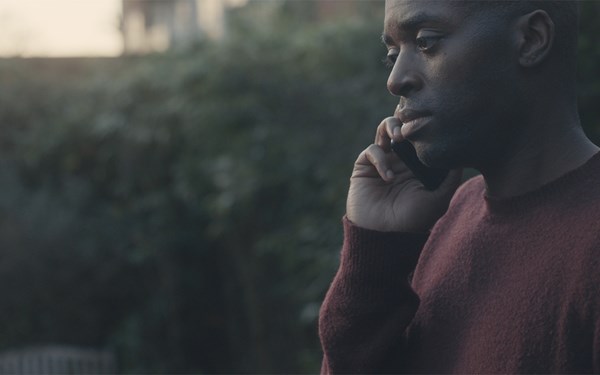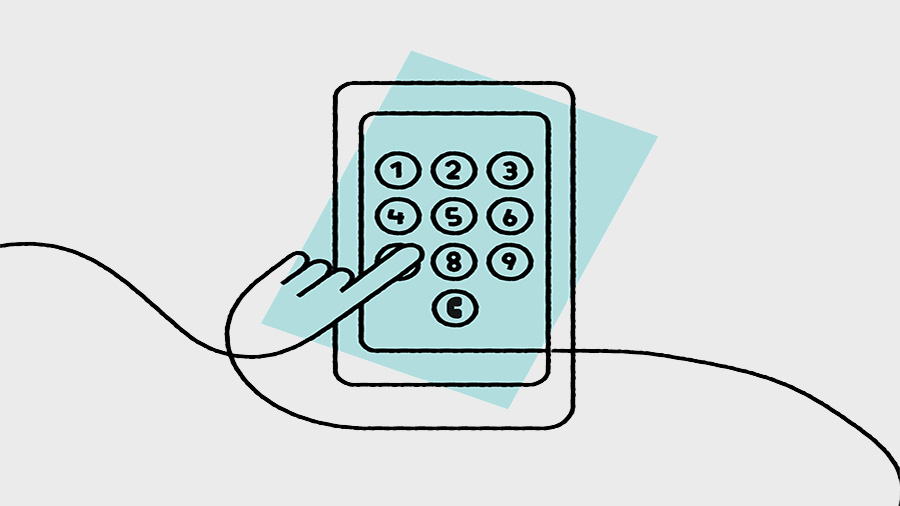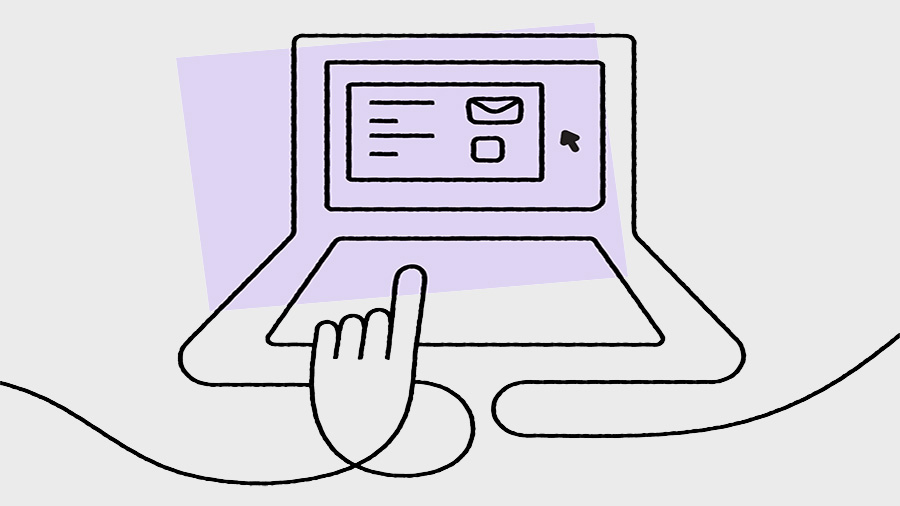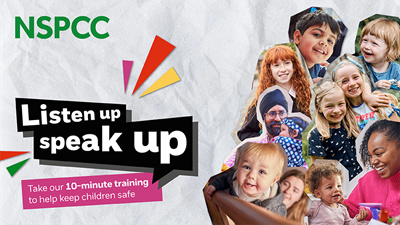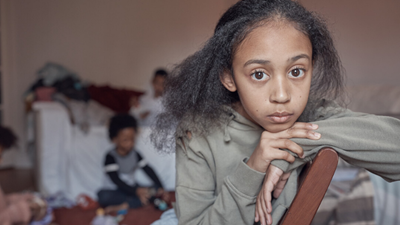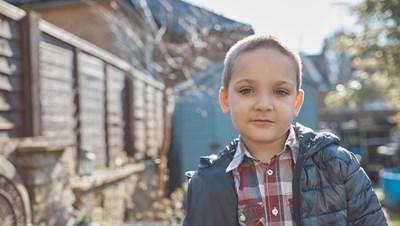If you have any concerns about a child, trust your instincts and contact the NSPCC Helpline. Our specialist team will listen, advise and take any action needed.
An estimated 1 in 20 children have experienced sexual abuse. And child sexual abuse is under-reported by adults. It's time for that to change.
It's never too soon to talk to us. And what you share could make a life-changing difference to a child.
You can contact the NSPCC Helpline by calling 0808 800 5000, emailing [email protected] or completing our report abuse online form.
Our voice Helpline is currently available 10am–8pm Monday to Friday. You can still email [email protected] or complete our report abuse online form at any time for free. If you think a child is in immediate danger, please call the police on 999 straight away.
Contact us
What happens when you contact the NSPCC Helpline
Our Helpline team are here to support you in a stress-free, comfortable way. Finding out what happens when you get in touch can help put your mind at ease about the process.
A call handler will answer the phone and ask a few basic questions to help them understand your worries. They might also give you answers to any questions that you have. If you’re worried about a child or young person or need parenting advice, they’ll put you through to a child protection specialist.
If you email us or submit our report abuse online form, they’ll prioritise the most urgent queries.
A child protection specialist will listen to your concerns and ask you any questions they might have. This helps to make sure they understand the information you’re sharing, assess the situation, and make decisions about the next steps to take.
If you email us or submit our report abuse online form, they’ll write back to you with advice or some questions. You might be asked to call the Helpline if you can.
When there’s a serious concern about a child and you've shared the child's identity, the child protection specialist will make a report and share information with social services. This is known as 'making a referral'.
They might also contact local police if the child is in immediate danger. If the Helpline don't need to make a referral, they’ll give you advice on what you can do or information on local services.
No matter the outcome of your contact, we always encourage you to get in touch again if you need to. We'll pass on any further information you or anybody else shares about the child or young person you're worried about.
We understand that you might want to know what happens to the child or young person. However, we have a duty to protect the privacy of those involved and won't be able to share that information.
Angen cysylltu â ni yn Gymraeg?
Pan fyddwch chi’n ffonio’r llinell gymorth gallwch chi ddweud eich bod eisiau siarad mewn iaith arall. Byddwn yn cofnodi ychydig o fanylion sylfaenol ac yn trefnu i’ch ffonio chi’n ôl gyda chyfieithydd Cymraeg. Gallwch chi hefyd anfon negeseuon e-bost Cymraeg. Mae gennym lawer mwy o wybodaeth am riportio cam-drin.
FAQs
Unsure about something? Read answers to our most popular questions below.
You can contact the NSPCC Helpline by calling 0808 800 5000, emailing [email protected] or completing our report abuse online form.
Our voice Helpline is currently available 10am–8pm Monday to Friday. You can still email [email protected] or complete our report abuse online form at any time for free. If you think a child is in immediate danger, please call the police on 999 straight away.
Whatever it is you’re worried about, our dedicated child protection specialists will be able to advise and take any necessary action.
With backgrounds in jobs like teaching, healthcare and social work, they know how to spot the signs of abuse, and what to do to help.
Sometimes it can be difficult to tell if a child is suffering abuse, but there are signs you can look out for. Visit our Spotting the signs of child abuse webpage for advice and support. You can also take our free, 10-minute training called Listen up, Speak up, and learn what to do if you’re ever worried about a child.
If you have any concerns at all about a child’s safety or wellbeing, share them with us. Don’t hesitate to contact our Helpline.
There are lots of reasons why someone might want to remain anonymous when contacting us. You don't have to tell us who you are, where you live or share your contact details.
If you do choose to share any of these details with us, you can tell us not to share them with other agencies – like the police or social services.
If we think a child could be at risk we have a duty to share the information that you give us with other agencies. But we'll respect your wishes about remaining anonymous.
If you'd like to find out more about remaining anonymous, please call 0808 800 5000 or email [email protected]
If you have a webcam you can contact us via SignVideo.
SignVideo using British Sign Language (BSL) is available on PC, Mac, iOS (iPhone/iPad) and Android smartphones (4.2 or above).
Once you're connected, a BSL interpreter will appear on your screen. You can explain to the interpreter what your concerns are and tell them that you want to contact the NSPCC. They'll contact us and relay your concerns to one of our child protection specialists.
The child protection specialist listens to your concerns, assesses the information and advises on a course of action. The interpreter will then relay the information and advice given by the child protection specialist to you.
This BSL video service is currently available from 8am–8pm Monday to Friday and 8am–1pm on Saturdays.
You can contact the NSPCC Helpline by calling 0808 800 5000, emailing [email protected] or completing our report abuse online form.
Our voice Helpline is currently available 10am–8pm Monday to Friday. You can still email [email protected] or complete our report abuse online form at any time for free. If you think a child is in immediate danger, please call the police on 999 straight away.
Our child protection specialists are there for anyone who's concerned about a child. You might want to report child abuse or neglect, but we also offer a range of other support to parents, carers and professionals.
They can answer queries about the right age to leave a child home alone, how to keep children safe online, or how to support children’s mental and emotional wellbeing.
Whatever the issue, we're here to keep children safe. Our Helpline staff will always provide expert advice and support.
Yes, you can. The Helpline is always here to help you. Even if you're not sure if you should be concerned, we can talk through what's happening and offer you the best advice we can.
If we think a child is at risk or a family needs support, we can make a referral to social services based on the information you've shared.
We always encourage you to talk through your worries with us at the earliest opportunity. This means children and families can get any support they need, and their situation doesn't get more difficult.
Children’s Services, more commonly known as social services or social care, are a department within every local authority in the UK.
They're responsible for safeguarding and promoting the welfare of the children in their area and have a duty to act when child protection concerns are shared with them.
The NSPCC is a charity whose aim is to prevent abuse, help rebuild children’s lives and support families. Our Helpline is available for any adult who's concerned about a child and is completely independent of Children’s Services.
When you contact the Helpline, you may want some advice or to talk about what's made you worried.
We'll ask for children’s details if we need to let Children’s Services and/or the police know that a child or family in their area may need support or protective action to be taken.
Our Helpline is a service for any adult with concerns about a child. Childline is also run by the NSPCC as a service for children and young people who need support or are facing problems or dangers they want to talk about.


